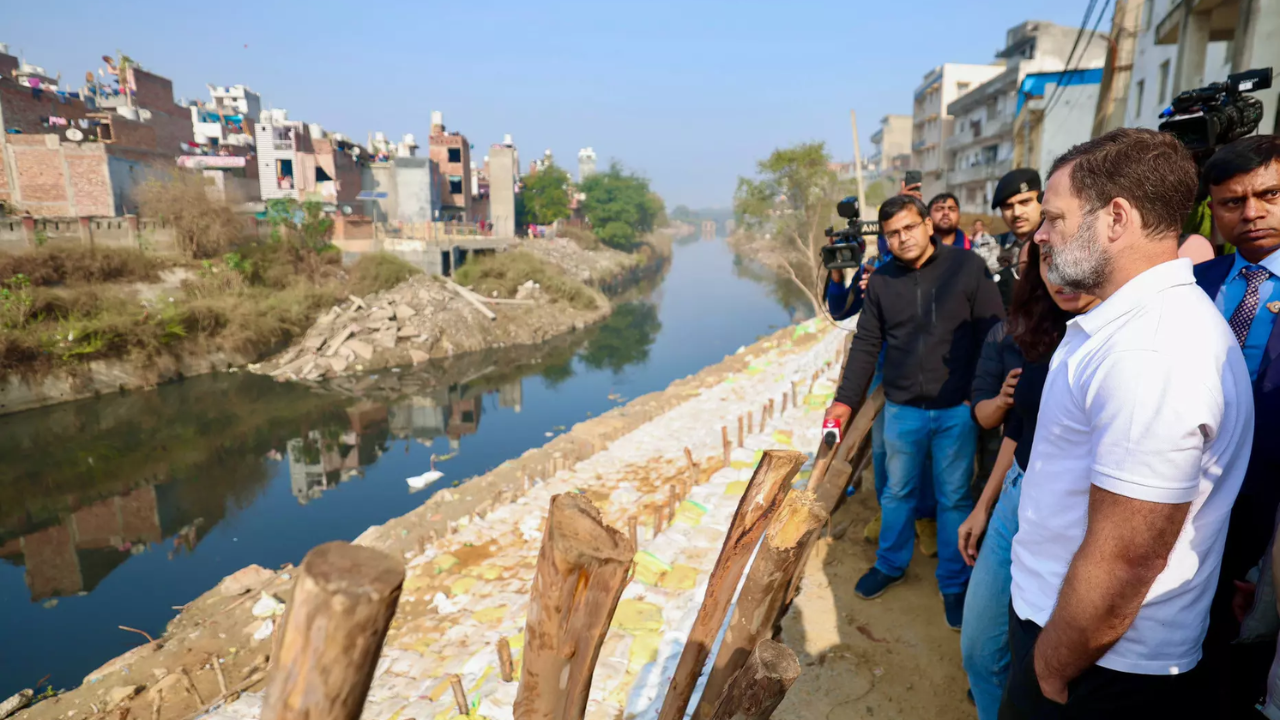Kejriwal's Delhi: A City Divided? Is the 'Paris of the East' All It's Cracked Up To Be?
Forget the glitz and glamour; Delhi's political landscape is currently embroiled in a dramatic showdown that's exposing a deep rift between former allies, leaving residents questioning whether the promised transformation has lived up to the hype. The recent verbal sparring between the Congress party and the Aam Aadmi Party (AAP) paints a grim picture of infrastructure, social justice, and political promises unfulfilled. Is this the shining 'Paris of the East' that was promised?
The State of Delhi's Infrastructure: A Tale of Two Cities?
Rahul Gandhi's recent video tour of Delhi's neglected infrastructure is sending shockwaves. The images—open drains, roads crumbling underfoot, and motorcyclists navigating treacherous mud—don't quite align with the image of a world-class city. This isn't just a critique of infrastructure; it points to a deeper failure to deliver on core promises. His visit to Rithala served as a stark reminder of the vast gap between the political promises and reality on the ground. The videos showcase conditions so dire they've become viral sensations online, generating a fierce debate over the effectiveness of governance and infrastructure spending.
Kejriwal's Response and the Political Backlash
While the AAP defends its efforts, it hasn't exactly offered any solutions to this apparent infrastructure crisis. The silence on issues like a collapsing drainage system and potholes, especially when juxtaposed against the political promises made to the people of Delhi, fuels a growing discontent among the public and is fueling opposition fire. What explains the inability of the ruling party to deal effectively with the matter? The political theater unfolding is anything but subtle, as parties scramble for position ahead of upcoming elections. This debate exposes a key aspect of Delhi's development: has progress really matched the promises?
Social Justice and Reservations: A Contentious Issue
The conflict between parties extends beyond infrastructure failures. Congress has accused the AAP of failing to address crucial issues related to social justice and reservations. The surfacing of an old video of Arvind Kejriwal seemingly advocating for restricting reservation benefits to those deemed truly needy reignited a storm of controversy. This revelation comes at a sensitive time, raising questions about the AAP's commitment to policies designed to uplift the most marginalized communities. Whether you see it as a pragmatic approach to ensure efficacy or as an undermining of equality and access to opportunity will largely define your position on this debate.
The Road Ahead: Navigating Political Pitfalls and Infrastructure Challenges
This political drama raises serious questions for residents of Delhi. Will these stark contrasts and conflicting statements finally force significant improvements to living conditions? Or will the infighting consume valuable time and resources better dedicated to solutions for ordinary citizens? What does this tug-of-war mean for future investments in critical infrastructure? How are long-term social and economic goals affected by this escalating fight? What concrete steps can the political establishment take to fix what's broken?
Take Away Points
- Delhi's infrastructure problems are under a harsh spotlight. Videos reveal conditions vastly different from what was promised.
- The recent political arguments highlight fundamental differences between the main parties, particularly on social justice issues and government spending.
- The future of Delhi and its development depends on addressing infrastructural issues effectively, resolving long-standing social justice challenges, and ending the divisive political narratives.
- Citizens must evaluate candidate promises and hold politicians accountable for their commitments.









